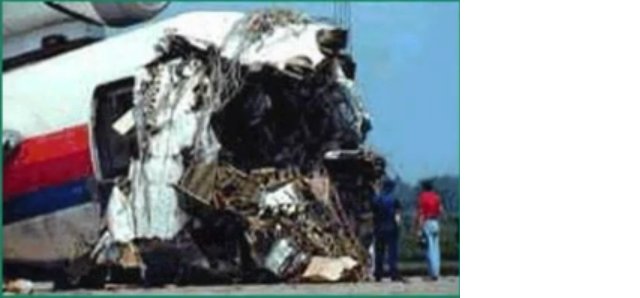

in-flight briefing) and failure to react to warnings such as those from the Ground Proximity Warning System. The continuation of disrupted sleep patterns and illness would have severely affected Captain Park, There would have been an accumulative effect leading to a highly undesirable state of fatigue, which would have taken a number of good nights sleeps to resolve, not just one nap in the middle of the day.Ĭaptain Park’s fatigue levels would have affected his performance levels which would have contributed to the confusion over the glide-slope, failure to carry out standard procedures (e.g. Added to this fact is that the accident took place at a time which has been shown to be associated with “degraded alertness and performance and a high probability of accidents” (NTSB, 2000). This would have led to a considerable downgrade in performance. Taking into account that fatigue is often underestimated, this verbal admission by Captain Park could have indicated that he was suffering severely from fatigue. Just after his earlier comment about the crew scheduling, Captain Park was recorded saying “Eh…really…sleepy” at 0121 (NTSB, 2000). Through an air safety investigation conducted in 1993 of an American International Airways accident in Cuba, it was found that people “often tend to underestimate their own level of fatigue” (NTSB, 2000). Captain Parks’ body would have been experiencing fatigue by this factor alone as his body would have been used to a different rhythm of sleep and wakefulness (see circadian rhythms). According to his wife, his usual bed time was between 22.

The arrival time of KE801 was scheduled for several hours after Captain Park Yong-Chuls’ usual bed time. This means that any useful rest would not have been gained as he would not have had sufficient REM sleep, thus waking up possibly more tired than before or with a false thought that he had gained reenergising sleep. A nap at this time has been deemed to be detrimental rather than beneficial to Captain Park as this time of day is one of a physiological wakefulness. When he returned from the gym he napped from 1100 to1340 (NTSB, 2000). On the 5th of August, the day KE801 departed Seoul, Captain Park awoke at his normal time of 0600 and went to the gym. Due to the timings of the flights, the Captain did not gain much sleep between the flights. Total flight time was only 7hours 30minutes so he did not qualify for extra rest time. Due to bad weather, the crew was forced to overnight and return to Seoul the next morning. He was complaining about this because three days before the crash on the 3rd August 1997, the Captain had flown a flight to Hong Kong from Seoul, a flight which is only four hours duration. He was complaining that a flight crew flying for less than nine hours did not receive any extended rest time. This flight coupled with the illness would have severely disturbed his sleeping patterns and may have continued to be affecting him on the 6th August.ĭuring the flight, around twenty minutes before impact, the Cockpit Voice Recorder (CVR) recorded Captain Park complaining about KE crew scheduling (NTSB, 2000). While having bronchitis, Captain Park had flown a Korea-US roundtrip. Ten days before the accident Captain Park had been diagnosed with bronchitis. Korean Air having inadequate flight crew training Contributing Factors: Fatigue The First Officers’ and Flight Engineers’ failure to efficiently monitor and cross-check the Captains actions The Captains failure to sufficiently brief and execute the non-precision approach

The NTSB found four main causes of this accident Contributing FactorsĪfter the accident there was a National Transportation Safety Board (NTSB) investigation, as Guam is an unincorporated territory of the United States of America. There were other contributing factors to this crash, they can be found in the National Transportation Safety Board Aircraft Accident Report from which the information in this post is derived. This post describes the contributing factor of fatigue as a human factor in the Korean Air Flight 801 accident at Nimitz Hill, Guam, August 6th 1997.


 0 kommentar(er)
0 kommentar(er)
